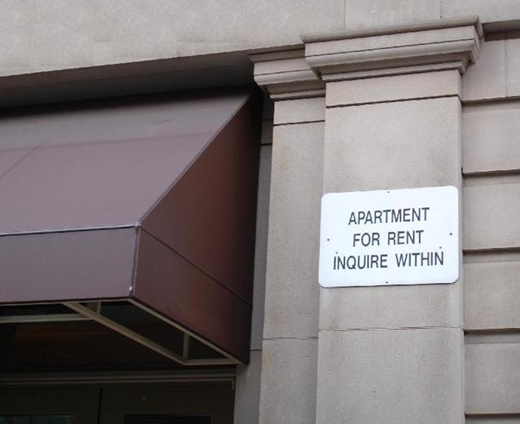
Ask any number of rental management companies and they'll tell you that the collection, tracking, and management of rent payments is a time-intensive task. Some of the issues that arise include late payment, the collection and collation of physical cheques, cheques that fail to clear the issuing bank, and the paperwork involved in keeping track of the relevant information.
To that end, many landlords are looking to e-payments as a mitigating solution. The ability to electronically process rent payments is seen as a boon by many, as they purport to reduce many of the headaches associated with rent collection.
Despite the many inherent advantages in accepting e-payments, the practice isn’t without its disadvantages. This begs the question of whether accepting e-payments for rent is a good or a bad idea.
In this article, we’ll examine the benefits and drawbacks of e-payment rent collection, and determine whether or not it’s a viable solution for building owners to pursue.
What Is e-Payment?
Rent payments have traditionally been paid by tenants on physical negotiable media such as cheques and money orders, or in cash. Conversely, e-payment is a broad term referring to the acceptance of rent payments electronically in lieu of cheques
As much of the modern world relies on electronic banking solutions, it leaves one to wonder why rents are still being physically collected. Not surprisingly, various service providers have appeared over the years to change this, and e-payments in the rental housing market are trending upwards.
Looking To Increase Efficiency & Profitability?
According to a 2015 report, 12,000 rental units in Canada pay their rents electronically through one service alone. RentMoola, a Vancouver-based rent collection startup, is one of many platforms facilitating such transactions. Their business model is simple: sign up property management companies, then allow tenants the option to pay their rents electronically through them.
As well, some landlords may choose to use their own payment solutions to facilitate rent collection. Existing platforms such as PayPal, credit card processors, and direct bank transfers are all viable options available to property managers.
Indeed, the electronic payment of rents is a trending topic. Below are some of the benefits of collecting rents electronically rather than physically.

Benefits of Accepting e-Payment for Rent
$50 billion in residential rent payments are made each year in Canada, according to Canadian Business. Finding a way to streamline the collection process has long been seen as a holy grail. Subsequently, the ability to have funds transferred automatically and electronically brings with it a host of benefits.
Specifically, these benefits include:
- Time saved by not having to physically collect cheques
- No risk of non-clearance of funds
- Wider variety of payment means for tenants including credit card
- Reduced time associated with tracking payments
- Reduced labour overhead
Previously, property managers would resort to such practices as requesting post-dated cheques in order to automate the rent collection process as much as possible. However, according to CMHC, this practice is actually illegal in some provinces and is therefore not an option.
Nowadays, rent can easily be collected remotely. The benefits in reduced labour costs alone are significant since tasks such as rounding up cheques, waiting in bank lineups and the paperwork associated with tracking payments is virtually eliminated.
Further, e-payments give the tenant a wider variety of methods for payment. This can lead to a lower non-payment rate since, for example, the tenant may choose to pay via credit card if they are facing a cash shortage.
Similarly, as the payments are received directly from either the tenant’s bank or via an independent processor, the risk of non-clearance of funds essentially becomes a thing of the past. In essence, all monies received by the property manager are guaranteed funds.
As another incentive to get rental property management companies onboard, many electronic rent payment services charge little or no fees to landlords. As some of these services offer perks such as points and rewards to tenants who pay via their platforms, they are frequently able to have corporate sponsors foot a large percentage of the cost.
Drawbacks of Accepting e-Payment For Rent
Of course, there are always drawbacks with any process, and the electronic payments sphere isn't immune to them. Some of the factors to consider include:
- Transaction fees may be applicable
- Delayed access to funds
- Potential for increased tenant debt
Depending on the payment platform used, the property manager may be liable to incur fees associated with accepting electronic payments. For those who accept credit cards directly, with their own merchant accounts, those fees can typically range from between two to three percent of the payment.
As ClearNow points out, these fees can add up:
“With credit cards, a percentage (approximately 2% to 3%) of the transaction amount is charged to the merchant (real estate investor) as a credit card processing fee. For example, a $1,000 rent would generate a $20 to $30 processing fee – a monthly charge that, similar to wires, is financially unacceptable for many investors.”
Even those property management companies that use dedicated rent collection services may be subject to fees such as chargebacks.
Also, electronic funds may not be instantly available to the receiver. In some cases, a clearing period may be necessary before the funds can be accessed.
Finally, another drawback to allowing tenants to pay by credit card is the potential for them to unwittingly head toward eviction by incurring greater and greater debt.
There are definitely two sides to the issue of acceptance of e-payments for rent. However, it seems clear that the positives outweigh the negatives in this regard. With benefits such as reduced labour cost, quicker tracking and accounting of payments, and reduced non-payment rates, electronic payments are here to stay.
ICC® Property Management offers expertly personalized rental management in Toronto. Contact us today to find out how we can help you to streamline all aspects of your building management, including electronic rent collection."
